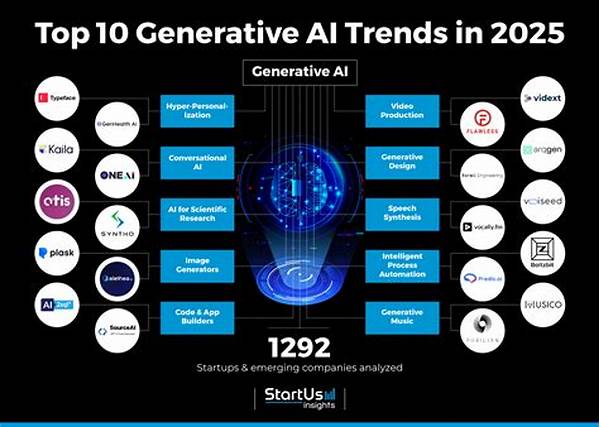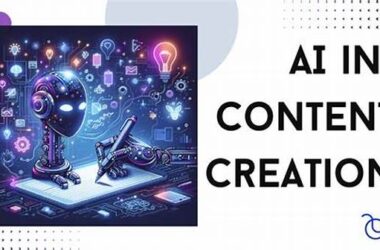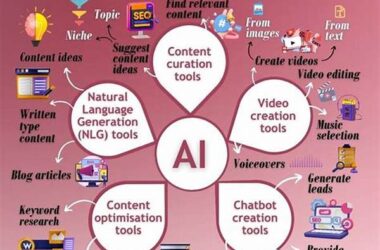- The Need for Advanced Image Tools in E-commerce
- Exploring the Potential of AI in E-commerce Imagery
- Understanding AI Impact on Marketing Strategies
- Six Essential Features of AI Image Tools
- Discussing the Role of AI in E-commerce
- Best Practices for Utilizing AI Image Tools
- Adopting AI Image Solutions for E-commerce Success
In the ever-evolving world of e-commerce, standing out is crucial, and one of the best ways to do so is through captivating imagery. With the rapid advancement of technology, AI has transformed the way businesses approach visual content. As we look towards 2025, the fusion of AI and image tools is set to revolutionize online shopping experiences. This is not science fiction; it’s the cutting-edge reality of the e-commerce industry, where AI image tools enhance aesthetics, personalize customer experiences, and ultimately drive sales. Welcome to a glimpse of the future: best AI image tools for e-commerce in 2025.
Read More : How Ai Comic Tools Inspire Digital Artists
Imagine a world where selecting the perfect image for your product doesn’t take hours of deliberation. AI-powered tools are now equipped to analyze consumer behavior, predict trends, and suggest visuals that have the highest potential for engagement. For example, AI image recognition can instantly evaluate the context of an image—color scheme, focus, background—and align it with what potential customers are inclined to appreciate. This offers a tailored experience for e-commerce businesses seeking to optimize their visual content strategy.
The efficiency doesn’t stop there. AI tools can now generate and edit images based on specific business needs. Consider a scenario where you want to offer multiple product variations, but lack images for each combination. AI can assist in creating high-quality, realistic images using baseline photographs, thus saving time and resources. The demand for authenticity and visual appeal has never been higher, and AI tools are now important allies in this endeavor. This technology isn’t just a luxury; it’s quickly becoming a necessity for competitive businesses.
Moreover, personalization is the future of successful e-commerce strategies and the best AI image tools for e-commerce in 2025 are at the forefront. These advanced tools can segment audiences based on preferences and purchasing history, and tailor images to suit individual tastes. By offering a more personalized shopping journey, businesses can cultivate stronger customer relationships and increase brand loyalty. This targeted approach ensures that marketing efforts resonate on a personal level, driving conversion rates and enhancing customer satisfaction.
The Need for Advanced Image Tools in E-commerce
With AI continuing to advance at an unprecedented rate, e-commerce businesses must leverage these technologies to remain competitive. According to recent studies, engaging product images can increase conversion rates by up to 30%. As consumer expectations surge, businesses need to ensure that their visual content is nothing short of exceptional. By investing in the best AI image tools for e-commerce in 2025, businesses are well-positioned to not only meet but exceed these expectations, setting themselves apart in a crowded digital marketplace.
—
Exploring the Potential of AI in E-commerce Imagery
In a bustling digital marketplace, capturing consumer attention within a split second is imperative. Best AI image tools for e-commerce in 2025 are transforming this landscape by elevating the standard of visual content. These tools can do more than just enhance photos; they can tell a story, evoke emotions, and build connections with consumers at a visceral level.
Take for instance, AI-driven image enhancement. These technologies can adjust lighting, remove unwanted elements, and even manipulate backgrounds with precision. The result? A flawless image primed to captivate consumers and boost their trust in the product quality. It’s much like having a professional photographer at your beck and call, ensuring that each image resonates with customers and tells your brand’s story.
AI is not only about enhancing but also creating. Generative AI algorithms have been fine-tuned to produce unique visual content from scratch. This ability is a game-changer for e-commerce businesses, allowing them to continually refresh their digital storefront without the need for costly and time-consuming photoshoots. Imagine launching a new season of products with fresh, high-quality visuals generated effortlessly by your AI assistant. This innovation streamlines operations and opens up vast creative possibilities.
As the e-commerce industry moves forward, consumer preference for personalization remains steadfast. The best AI image tools for e-commerce in 2025 embrace this by personalizing images that appeal directly to individual tastes and preferences. Through data analysis and machine learning, these tools can adjust each image to cater to different demographics, shopping habits, and cultural trends. It’s a bespoke approach to digital marketing that strengthens brand loyalty and fosters deeper consumer connections.
Understanding AI Impact on Marketing Strategies
AI’s impact extends beyond image design; it’s integral to the overall marketing strategy. Businesses can leverage AI to guide image deployment, optimizing what visuals appear when and where. Through analytics and consumer data, AI tools ensure your images hit the right mark, at the right time, on the right platform. It’s the science of precision marketing, driven by the power of AI.
The numbers behind AI’s influence are convincing. Research indicates that personalization in marketing can lead to an average revenue increase of 10% or more. As businesses strive for authenticity and engagement, the best AI image tools for e-commerce in 2025 offer a clear path to achieving these goals efficiently and effectively. Utilizing AI isn’t just about keeping up with trends; it’s about paving the way for future success in a graphically-focused online environment.
—
Six Essential Features of AI Image Tools
Discussing the Role of AI in E-commerce
As the e-commerce domain evolves, the role of AI in image tools becomes an exciting frontier. These developments have a considerable impact on how businesses interact with their customers. In today’s fast-paced world, capturing a customer’s attention through visual appeal has become more challenging yet more achievable with AI. By analyzing market trends and optimizing images, AI has propelled e-commerce businesses to meet and exceed customer expectations.
One cannot underestimate the value of high-quality images in forming a customer’s first impression. Often, before reading product descriptions or reviews, customers make decisions based on visuals. AI image tools ensure these visuals are not only appealing but tailored fit for the audience viewing them. This capability to pinpoint and cater to consumer desires through imagery plays an important role in boosting sales and creating brand differentiation in a saturated market.
More than ever, businesses are embracing these technological advancements not just for the competitive edge but to redefine customer experience. AI is poised to take image processing to greater heights with continuous research and the integration of machine learning. As AI fine-tunes its understanding of consumer needs, those who capitalize on this technology will undoubtedly lead in customer satisfaction and brand loyalty in the competitive field of e-commerce.
—
Best Practices for Utilizing AI Image Tools
Imagine automating the entire visual content strategy while still maintaining an unrivaled quality. AI tools allow businesses to do just that, not only providing high efficiency but also the ability to scale and adapt rapidly to market demands. However, with innovation comes the need for proper integration, regular updates, and strategic use to fully leverage the advantages that AI offers in image processing for e-commerce. As we stand at the threshold of this innovative era, businesses must act quickly to incorporate these tools into their existing workflows for effective customer engagement.
—
Adopting AI Image Solutions for E-commerce Success
In this fast-paced digital age, businesses are pushing boundaries to stay relevant, and adopting AI image tools is quickly becoming a necessity rather than an option. The best AI image tools for e-commerce in 2025 offer more than just aesthetic solutions—they provide a comprehensive strategy for engaging consumers in a meaningful way. This transformation is crucial as consumers gravitate towards brands that not only meet their needs but anticipate them.
A fundamental aspect of AI tools is their ability to offer unique personalization features. The days of one-size-fits-all marketing are dwindling. Customers now expect personalization across every touchpoint, and AI is at the heart of delivering this demand. Whether it’s showcasing a product in a customer’s favorite color or predicting their needs based on past behavior, AI enables businesses to create bespoke shopping experiences that resonate deeply with their audience.
AI tools are reshaping the playing field by making personalized marketing accessible and feasible on a large scale. Imagine the impact of predicting a trend before it peaks and aligning your product images to match that trend seamlessly. AI drives such strategic initiatives, measuring engagement and sales metrics to refine strategies in real time. This proactive measure improves conversion rates and optimizes customer lifetime value.
The integration of AI-driven insights into the e-commerce visual content strategy is beneficial for enhancing consumer interaction and improving brand identity. As AI continues to develop, it will further revolutionize how businesses design and implement their visual marketing efforts. By proactively investing in the best AI image tools for e-commerce in 2025, forward-thinking businesses can guarantee a competitive edge and lead in customer satisfaction and loyalty.
For those ready to innovate and thrive, the invitation is clear: embrace the future of e-commerce by incorporating the cutting-edge capabilities of AI image tools. Equip your business with the means to captivate and connect with consumers, turning clicks into customers and browsers into buyers, not just today, but as we advance forward into 2025 and beyond.



